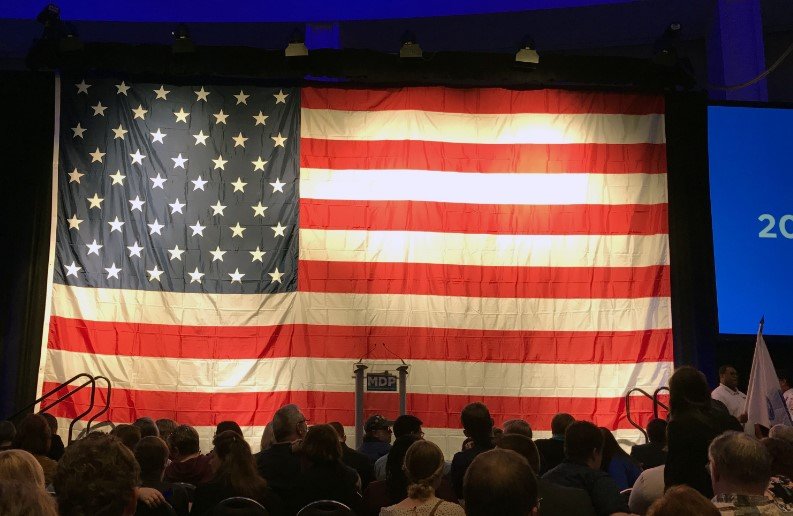The Michigan Democratic Party’s state convention was marked by intense discussions and debates, with the war in Gaza and the University of Michigan (U-M) Regent race taking center stage. The convention, held in Lansing, saw a significant turnout of delegates and supporters, all eager to voice their opinions on these critical issues. The U-M Regent race, in particular, drew considerable attention due to its implications for the party’s stance on international conflicts and domestic policies.
The U-M Regent Race: A Contested Battle
The University of Michigan Regent race was the only contested race at the convention, highlighting its importance. Palestinian American lawyer Huwaida Arraf launched a last-minute campaign, backed by anti-war student protesters. Despite her efforts, Arraf lost to incumbent Democrat Denise Ilitch and Dr. Shauna Ryder Diggs. The race was marked by passionate speeches and demonstrations, with Arraf’s supporters chanting pro-Palestinian slogans and demanding transparency in the voting process.
The race underscored the deep divisions within the party regarding U.S. foreign policy, particularly towards Israel. Arraf’s campaign was seen as a statement against the current administration’s handling of the Gaza conflict. Her supporters argued that the Democratic Party needs to take a stronger stance on human rights issues and support Palestinian self-determination. The outcome of the race, however, showed that the party remains divided on these issues.

Ilitch and Diggs, both experienced candidates, emphasized their commitment to improving the university’s policies and supporting students. Ilitch, a former president of Ilitch Holdings, Inc., focused on making tuition more affordable, while Diggs, a dermatologist and U-M alumna, highlighted her plans to enhance campus health services. Their victory was seen as a win for the party’s establishment, but the close race indicated that there is significant support for more progressive candidates within the party.
The Impact of the Gaza Conflict
The ongoing war in Gaza was a major topic of discussion at the convention. Vice President Kamala Harris’s recent remarks on the conflict sparked reactions from both Arab American and Jewish American communities in Michigan. Harris’s call for a ceasefire and humanitarian aid was welcomed by some, but others felt that her statements did not go far enough in addressing the root causes of the conflict.
The war in Gaza has had a profound impact on the Michigan Democratic Party, exposing rifts between different factions. Some delegates called for a more robust response from the U.S. government, including an arms embargo on Israel. Others argued that the party should focus on diplomatic solutions and support for both Israeli and Palestinian civilians. The debate highlighted the challenges the party faces in balancing its commitment to human rights with its strategic alliances.
The convention also saw several protests and demonstrations related to the Gaza conflict. Pro-Palestinian activists called for the university to divest from companies involved in the conflict, while pro-Israel groups emphasized the need for security and stability in the region. These demonstrations reflected the broader national debate on U.S. foreign policy and its implications for domestic politics.
Looking Ahead: Unity and Division
As the Michigan Democratic Party looks ahead to the November elections, the issues discussed at the convention will likely continue to shape its platform. The U-M Regent race and the Gaza conflict have highlighted the need for the party to address internal divisions and find common ground on key issues. The party’s ability to unite its diverse base will be crucial in the upcoming elections.
The convention also underscored the importance of grassroots activism and the role of young voters in shaping the party’s future. The strong turnout and passionate debates demonstrated that the party’s base is engaged and ready to advocate for change. However, the party will need to navigate these internal dynamics carefully to maintain unity and present a cohesive platform to voters.
tThe Michigan Democratic Party’s state convention was a microcosm of the broader challenges facing the party. The U-M Regent race and the Gaza conflict brought to the forefront issues of foreign policy, human rights, and party unity. As the party moves forward, it will need to address these challenges head-on to build a strong and united front for the upcoming elections.

Comments